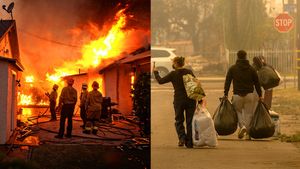
Treatment GuideJust DiagnosedSex & DatingAfrican AmericanStigmaAsk the HIV DocPrEP En EspañolNewsVoicesPrint IssueVideoOut 100
CONTACTCAREER OPPORTUNITIESADVERTISE WITH USPRIVACY POLICYPRIVACY PREFERENCESTERMS OF USELEGAL NOTICE
© 2025 Pride Publishing Inc.
All Rights reserved
All Rights reserved
By continuing to use our site, you agree to our Private Policy and Terms of Use.
Might the heightened media coverage this past summer surrounding Farrah Fawcett's death from anal cancer get HIVers to start talking more about anal health? HIV specialists, gay health advocates, and HIV-positive anal cancer survivors hope the answer is a resounding "Yes!" The American Cancer Society estimates that more than 5,000 people will be diagnosed with anal cancer this year, and there is little doubt that many will be HIV-positive. Studies suggest that HIVers-in particular gay and bisexual men-are up to 80 times more likely to develop anal cancer than the general population. Anal cancer has been linked to the human papillomavirus, which is the cause of genital warts. Virtually anyone who has had sex has been exposed to HPV. Typically, it's fairly easy for the immune system to knock out any infection the virus may cause. But for HIVers, HPV is harder to eradicate, making it more likely to progress to cancer. Like many other physicians, Jeffrey Ellis, a dermatologist in New York, has seen an increase in the number of HIV-positive men requiring treatment for HPV-related anal and genital warts. Well aware that these men are also at higher risk for anal cancer, Ellis refers these patients to colleagues who can provide anal Pap smears, which can detect this type of cancer. Currently, no national recommendations on routine anal Pap screening exist. A number of HIV specialists, though, now offer their patients annual anal Paps. Those who test positive and need follow-up care are referred to specialists who perform high-resolution anoscopy, which can identify precancerous or cancerous growths in the anal tissue. Some health advocates have begun promoting annual anal Pap screenings for all HIVers. But as Joel Palefsky, MD, an HIV specialist at the University of California, San Francisco, who founded the first anal neoplasia clinic, notes, it makes little sense to offer anal Pap tests to HIVers who do not have access to a doctor who provides anoscopy screenings as well. Instead, he says, these HIVers "should have an annual digital rectal exam," which is something "that all primary care providers know how to do." Paul, a 59-year-old HIVer who was diagnosed with anal cancer in 2002, says he hopes the stigma attached to anal cancer will dissipate as more people learn about the disease. In many ways, he says, being diagnosed with anal cancer "felt like going back to having HIV. Here I was again with another unpopular disease that no one is willing to talk about."
From our Sponsors
Most Popular
Why activist Raif Derrazi thinks his HIV diagnosis is a gift
September 17 2024 12:00 PM
How fitness coach Tyriek Taylor reclaims his power from HIV with self-commitment
September 19 2024 12:00 PM
Out100 Honoree Tony Valenzuela thanks queer and trans communities for support in his HIV journey
September 18 2024 12:00 PM
The freedom of disclosure: David Anzuelo's journey through HIV, art, and advocacy
August 02 2024 12:21 PM
Creator and host Karl Schmid fights HIV stigma with knowledge
September 12 2024 12:03 PM
From ‘The Real World’ to real life: How Danny Roberts thrives with HIV
July 31 2024 5:23 PM
Eureka is taking a break from competing on 'Drag Race' following 'CVTW' elimination
August 20 2024 12:21 PM
California confirms first case of even more deadly mpox strain
November 18 2024 3:02 PM
Plus: Featured Video
Latest Stories
A camp for HIV-positive kids is for sale. Here's why its founder is celebrating
January 02 2025 12:21 PM
This long-term HIV survivor says testosterone therapy helped save his life.
December 16 2024 8:00 PM
'RuPaul's Drag Race' star Trinity K Bonet quietly comes out trans
December 15 2024 6:27 PM
Ricky Martin delivers showstopping performance for 2024 World AIDS Day
December 05 2024 12:08 PM
AIDS Memorial Quilt displayed at White House for the first time
December 02 2024 1:21 PM
Decades of progress, uniting to fight HIV/AIDS
December 01 2024 12:30 PM
Hollywood must do better on HIV representation
December 01 2024 9:00 AM
Climate change is disrupting access to HIV treatment
November 25 2024 11:05 AM
Post-election blues? Some advice from mental health experts
November 08 2024 12:36 PM
Check out our 2024 year-end issue!
October 28 2024 2:08 PM
Meet our Health Hero of the Year, Armonté Butler
October 21 2024 12:53 PM
AIDS/LifeCycle is ending after more than 30 years
October 17 2024 12:40 PM
Twice-yearly injectable lenacapavir, an HIV-prevention drug, reduces risk by 96%
October 15 2024 5:03 PM
Kentucky bans conversion therapy for youth as Gov. Andy Beshear signs 'monumental' order
September 18 2024 11:13 AM
Study finds use of puberty blockers safe and reversible, countering anti-trans accusations
September 11 2024 1:11 PM
Latinx health tips / Consejos de salud para latinos (in English & en espanol)
September 10 2024 4:29 PM
The Trevor Project receives $5M grant to support LGBTQ+ youth mental health in rural Midwest (exclusive)
September 03 2024 9:30 AM
Introducing 'Health PLUS Wellness': The Latinx Issue!
August 30 2024 3:06 PM
La ciencia detrás de U=U ha estado liberando a las personas con VIH durante años
August 23 2024 2:48 PM















































































